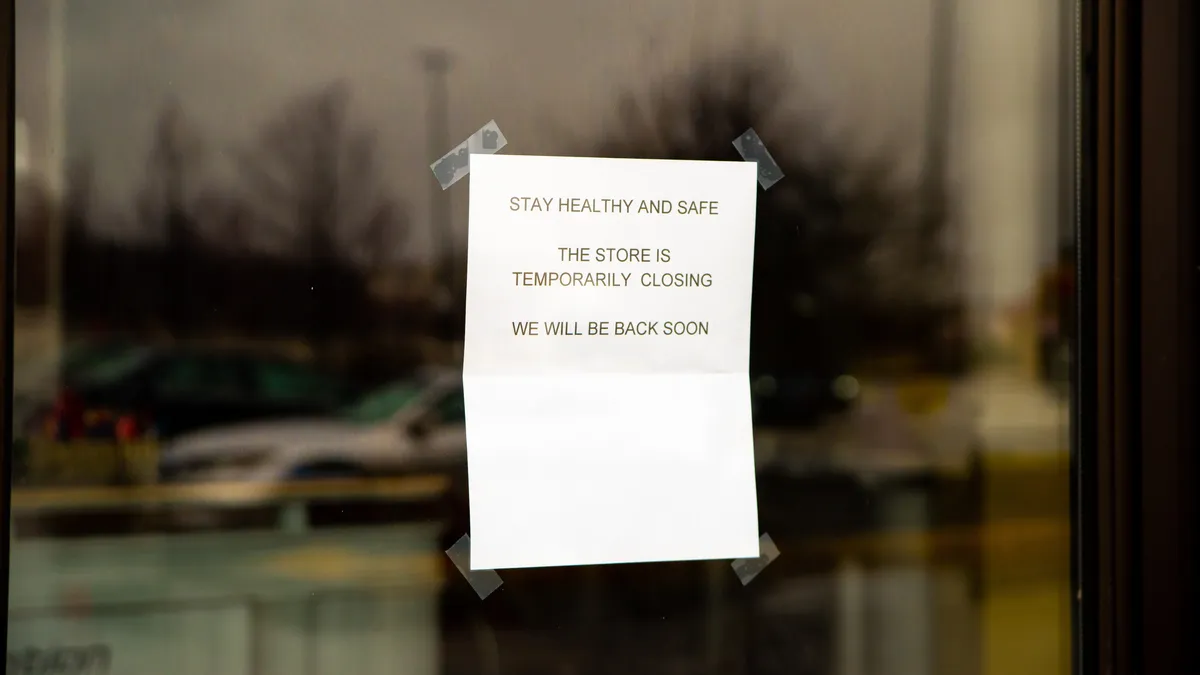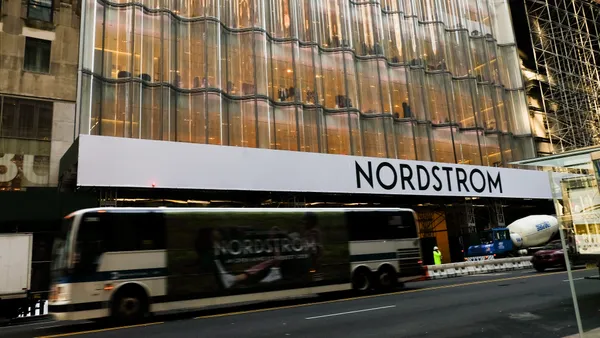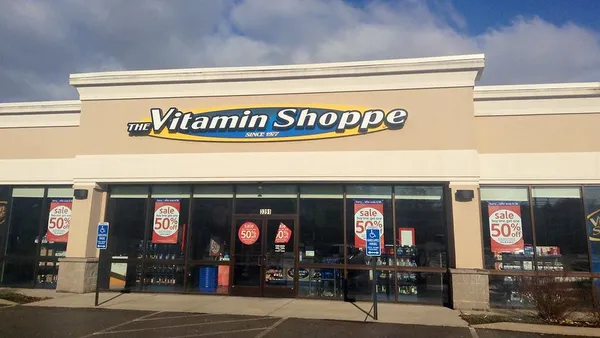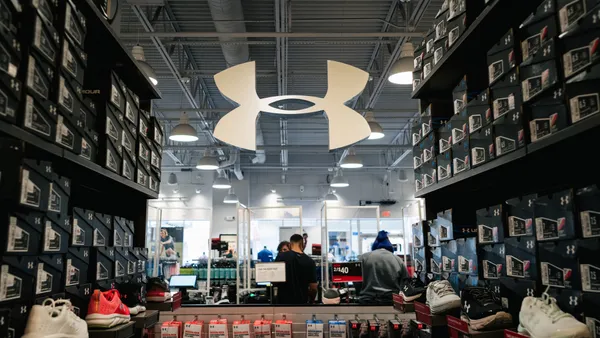Dive Brief:
- With S&P Global forecasting nonessential retail and restaurant sales to decline 30% this year, analysts with the ratings agency said in a new report that the COVID-19 pandemic has created "catastrophic" financial conditions for the sector.
- The analysts, led by Sarah Wyeth, said they recently revised their estimates to show an even larger sales decline for 2020, as the pandemic leads to prolonged store closures, according to the report. And they don't expect sales to return to 2019 levels until 2022.
- Since the pandemic began roiling the industry, S&P has downgraded about one-third of the retail companies it covers. That includes retailers that have investment-grade credit ratings such as TJX Cos. and Ross Stores.
Dive Insight:
As the S&P analysts note, retail is "squarely in the crosshairs of the pandemic." The majority of the discretionary retail world has shuttered without a firm date in sight for when it will be safe to re-open stores, as the country tries to slow the spread of COVID-19. More, there is no certainty about what happens when doors open again.
With doors shut, retailers have taken dramatic steps to bring in and hold on to cash. They've drawn on credit lines, issued new debt, furloughed employees, skipped on payments to landlords and suppliers, cut costs and abandoned investment plans, among other moves.
Department stores, apparel, and off-price retail face the highest impact from the pandemic, according to the S&P report. The first two sectors — department stores and apparel — went into 2020 with deep troubles in the form of flagging sales, deteriorating profits, multi-pronged competitive issues and declining foot traffic in malls, among other issues.
Off-price has been one of the brightest spots in retail, but off-pricers like TJX, Ross and Burlington Stores have no escape from the pandemic, being by and large brick-and-mortar creatures. TJX announced mid-March that in addition to its brick-and-mortar locations, it was also temporarily closing its online operations, and has yet to reopen either. Ross has no e-commerce presence and Burlington recently announced it would wind down its online store.
While some analysts have said e-commerce is not replacing any significant amount of lost physical sales for nonessential retailers, at least it provides some income during the shutdowns. MKM Partners analyst Roxanne Meyer said in an emailed client note Monday that "off-price is worst positioned given they are solely reliant on store traffic returning, which could take time."
But she also notes that the large off-price retailers have strong liquidity — a major advantage in a time of cratered sales — and inventory management, making them well positioned for the other side of the crisis. Their historically strong performance in recessions also bodes well for the sector going forward, Meyer said.
As the S&P analysts note, even retailers that are open, with governments deeming them essential, are operating at reduced levels. Walmart and Target, for example, are limiting traffic to their stores. With very few exceptions, foot traffic has declined across the retail world, according to a tracker developed by traffic analytics firm Placer.ai.
"Stay-at-home guidelines and fear of the virus will likely further pressure sales in the near term," S&P analysts said. "As the need for social distancing declines, prospects will depend on the pace of the recovery and other unique dynamics."













